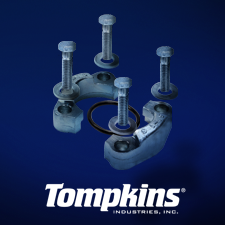Audit: PT distributors lack online ordering capability
A recent audit of the websites of motors and power transmission distributors found that most sites lack functionality to meet customer online ordering expectations.
The audit was conducted by hybris, an SAP company, which analyzed 52 websites in the motors and power transmission distributors sector to benchmark their e-commerce capabilities. The audit found that most websites lack in functionality to meet customer expectations for online ordering across a variety of criteria including product information, search and self-service options.
According to the Motors and Power Transmission E-Commerce Audit, this segment of industrial suppliers is not positioned to profit from e-commerce based on the current state of their websites. Findings show that less than 10 percent of the websites analyzed have high e-commerce functionality -- defined as comprehensive search and navigation, the ability for customers to easily track orders and generate invoices, check out safely and efficiently, and rich product descriptions and specifications.
Basic or non-existent e-commerce functionality does not match B2B purchaser preferences according to the hybris 2012 State of B2B E-Commerce study, which indicates that 88 percent of B2B buyers would primarily make business purchases online if given the option.
"Based on B2B buyer expectations and the threat of e-commerce giants such as Amazon, motors and power transmission distributors must step up their strategies to deliver an e-commerce experience that is comparable to or better than the competition," said Steven Kramer, executive vice president sales, Americas, hybris. "Now more than ever, B2B buyers expect a shopping experience that is just as enhanced as B2C purchasing. In the long-run, transitioning to e-commerce capabilities and offering an exceptional user experience can translate into much higher profits than sticking to transitional offline commerce."
Challenges Unique to Motors and Power Transmission Distributors
Motors and power transmission distributors face unique challenges due to the wide range of industries they reach, including oil and gas, medical, automotive and food processing. These suppliers are often faced with managing customer issues related to product relevance between industries, knowledge of regulations and service.
Due to these challenges, the audit found that three in four websites currently do less than 10 percent of business online with one-third of respondents doing no business online.
"While distributors in the motors and power transmission sector must address several challenges before expanding e-commerce offerings, the audit reveals a significant gap in these distributors' capabilities for reaching customers online," said Kramer. "By making e-commerce and omni-channel commerce a priority, distributors can ultimately enhance the customer experience across all channels -- including more traditional print catalogs and physical store locations -- and profit from it."
While 96 percent of the 52 websites audited have e-commerce websites, most do not provide a fully integrated e-commerce customer experience. Distributors' websites in this sector fall short in areas including product information, application-based search and self-service options.
Opportunities to Improve Product Information
The audit reveals motors and power transmission distributors lack rich product data on their e-commerce websites. Of the websites audited, less than half (47%) display product dimensions and technical specifications and only one in five clearly display product pricing.
"When deploying a B2B e-commerce website, industrial distributors must consider e-commerce platform providers that can ensure product content information is easy to locate and centrally managed," said Kramer. "The most effective platforms integrate product information for all channels, including websites, tablets, smartphones and social networks, eliminating a siloed approach to e-commerce."
Assure Application-Based Search is Fully Functional
Motors and power transmission distributors also fall behind with application-based search capabilities. While 60 percent of sites allow customers to search by product name, only two in five give users the option to search by product code. Additionally, only 37 percent of websites audited allow customers to search for products by attribute such as size, brand and price.
B2B distributors shopping online want to quickly locate specific products that are relevant to their needs, but according to the audit, most websites have extremely weak capabilities in this area. Most buyers want to search for products via product numbers and amounts as quickly as possible, and a flexible commerce platform allows for more streamlined search capabilities.
Offer Customers Robust Self-Service Options
Robust e-commerce functionality enables industrial distributors to have self-service opportunities, such as conducting product research, reading detailed products specs and other buyers' reviews, placing orders online, and tracking orders dynamically. Today's business buyers greatly value self-service such as viewing account histories and adjusting orders and returns.
Through self-service options, motors and power transmission distributors can also create a "human element" by offering a live chat feature, where product experts can quickly and easily answer customer questions.
According to the audit, there is a substantial opportunity for motors and power transmission distributors to take into consideration the current capabilities their B2B e-commerce websites offer and the capabilities customers expect. As industrial distribution constantly evolves, distributor websites must embrace and respond to these changes in order to retain and attract new customers.
"Deploying an e-commerce website can seem daunting to industrial distributors at first," said Kramer. "This audit provides motors and power transmission distributors with the information necessary to take the crucial first steps towards building effective and long-term e-commerce strategies."












